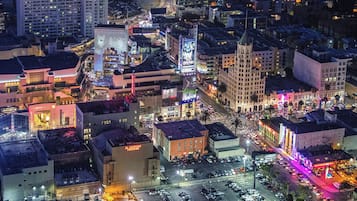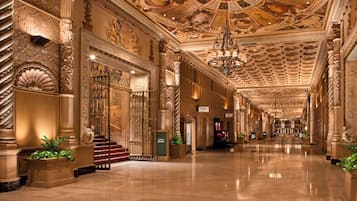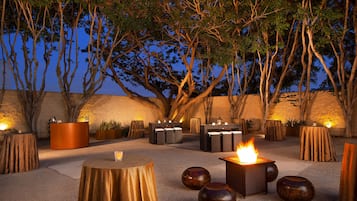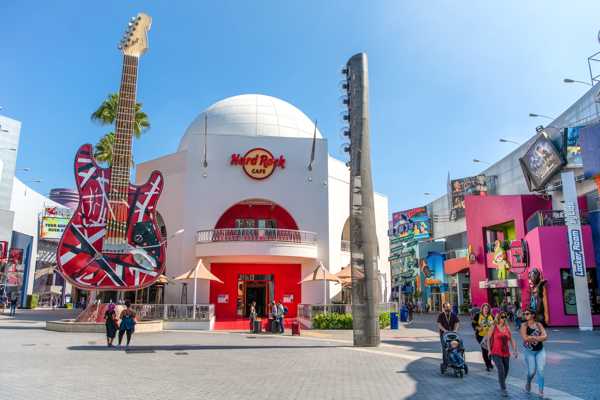The Griffith Observatory is an iconic Los Angeles landmark. Since 1935, locals, amateur astronomers, and visitors hitting the best LA spots have made the journey to this historic observatory to see astronomical wonders and the gleaming City of Angels below. Perched on the south face of Mount Hollywood in Griffith Park, the observatory offers incomparable views (on clear days) of the entire LA basin, the famous Hollywood Sign, and the sparkling Pacific Ocean.
Inside the Art Deco-designed building, you could easily spend a couple of hours – either stargazing through ultramodern telescopes, exploring the universe thanks to the impressive space and science-related exhibits, and at its top-notch Planetarium. A fantastic perk is that admission to the observatory is free. There’s just a small fee to watch the planetarium shows. So, when you’re in LA, skip celeb-spotting and visit the Griffith Observatory to see some real stars.
Griffith Observatory in Los Angeles - one of the highlights of Summer Vacations in Los Angeles and 11 Best Things to Do for Couples in Los Angeles (Read all about Los Angeles here)
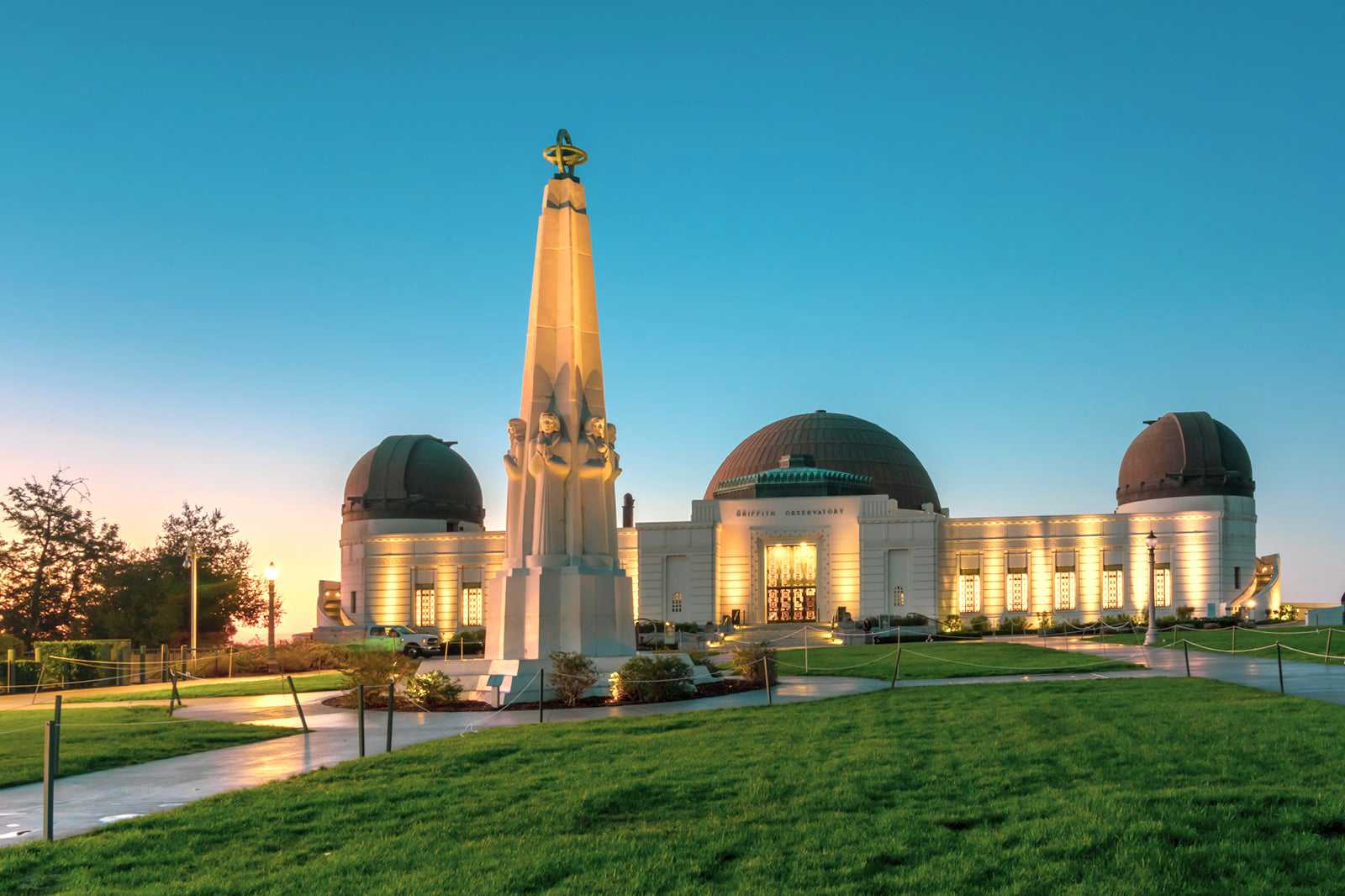
What are the highlights and features of Griffith Observatory?
The Griffith Observatory is a spectacular place to visit if you want to discover the mysteries of our solar system, and beyond. Undoubtedly, you’ll want to take a peek of the universe through the Observatory’s crowning glory: the Zeiss Telescope. The 12-inch refracting telescope is on the roof-top dome on the east end and is one of the most-looked-through telescopes in the world.
On the ground floor are the Ahmanson Hall of the Sky and the Wilder Hall of the Eye. The complementary exhibitions focus on humans’ relationship with the sun, moon, planets, and galaxies and how observing the sky has shaped civilisations for millennia. You’ll also find the high-tech Samuel Oschin Planetarium which puts on fascinating shows – suitable for all ages – about the marvels of the cosmos. A storyteller narrates every show live. Downstairs, the Leonard Nimoy Event Horizon Theater hosts a 24-minute film every hour about the history of the Observatory. Seating is on a first-come, first-serve basis.
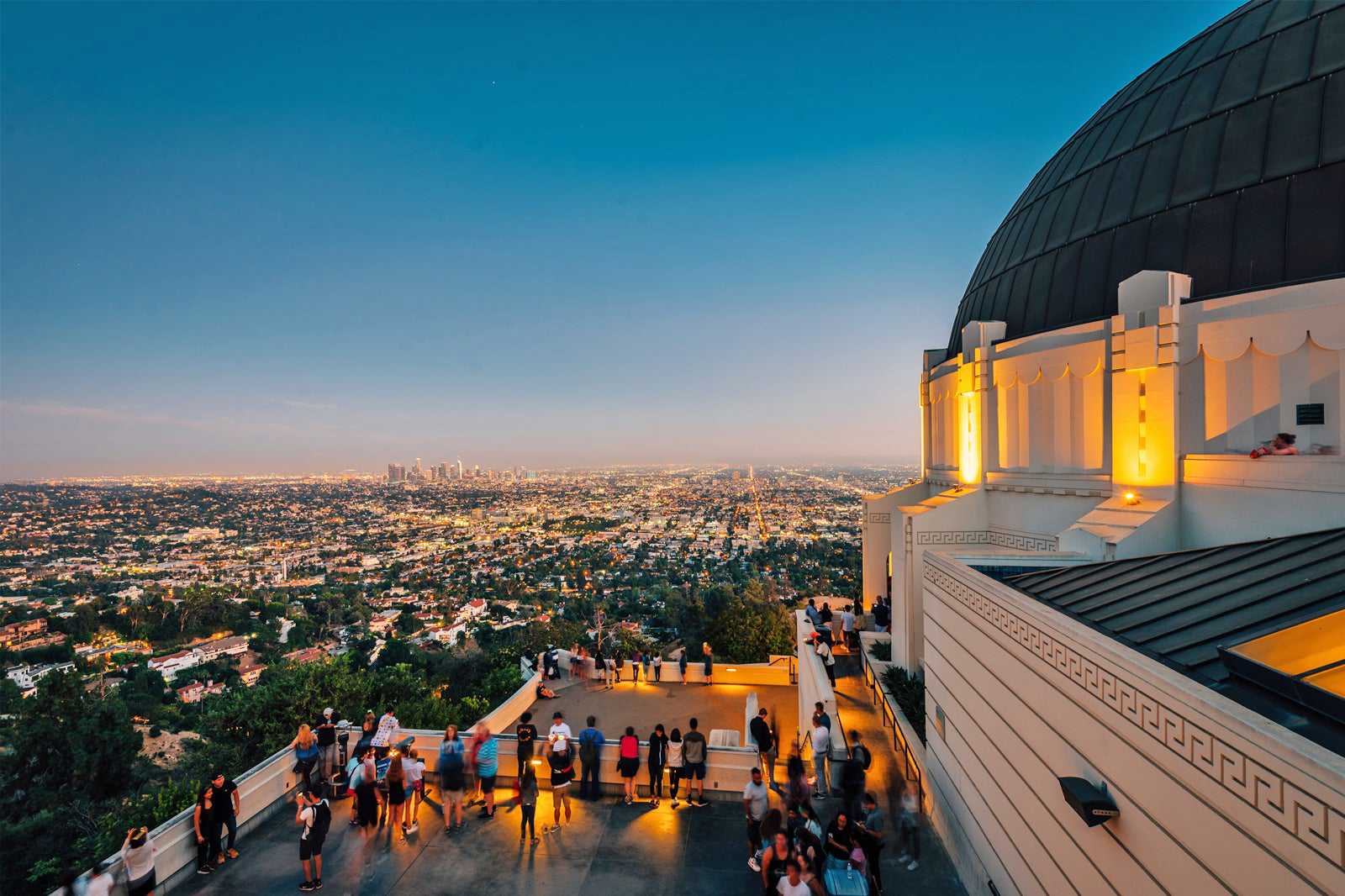
A brief history of Griffith Observatory
The Griffith Observatory dates back to 1935. The structure was named after Griffith J. Griffith, a controversial and notorious philanthropist who served jail time for shooting his wife. In 1896, he donated 3,000 acres of land surrounding the observatory to the City of Los Angeles. In his will, he left money to build the Griffith Observatory on the donated land. His dream was to make astronomy accessible to the general public.
Besides ‘journeying’ into outer space, the observatory has long been a favourite movie set for filmmakers. The picturesque location has featured in several blockbusters including La La Land (2016), Charlie’s Angels: Full Throttle (2003), Yes Man (2008), The Terminator (1984), and even the 1955 classic Rebel Without a Cause. Fans of James Dean can visit the Rebel Without a Cause Monument on the west side of the observatory lawn.
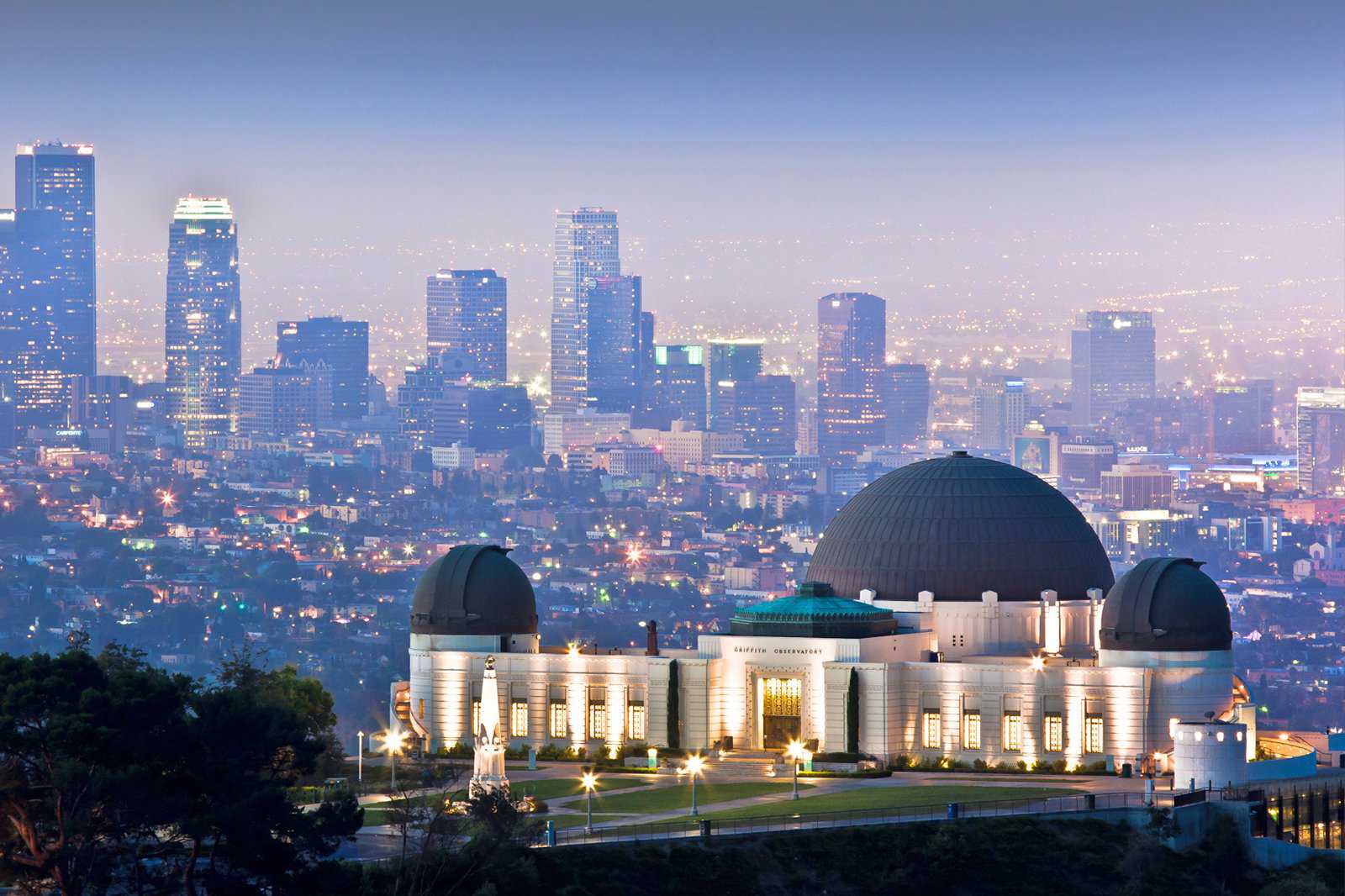
Good to know about Griffith Observatory
Visiting the Griffith Observatory isn’t only about romantic sky-watching. You can explore Griffith Park, which is free of charge. The 4,511-acre park has over 60 miles of hiking, biking, trail running, and horseback riding trails. You can also visit the Los Angeles Zoo & Botanical Gardens and the Autry Museum of the American West. Griffith Park is open every day from 5 am to 10.30 pm.
You can access Griffith Observatory through Griffith Park, which has several entrances along Los Feliz Boulevard. If you’re driving, paid parking is available in the observatory car park or free along the nearby roads. Alternatively, hop on the DASH Observatory shuttle bus. The bus runs every 20 minutes between Vermont/Sunset station of the Metro Red Line and the observatory.
Griffith Observatory in Los Angeles
Lage: 2800 E Observatory Rd, Los Angeles, CA 90027, USA
Öffnungszeiten: Tuesday–Friday from noon to 10 pm, Saturday–Sunday from 10 am to 10 pm (closed on Mondays)
Telefon: +1 213-473-0800







